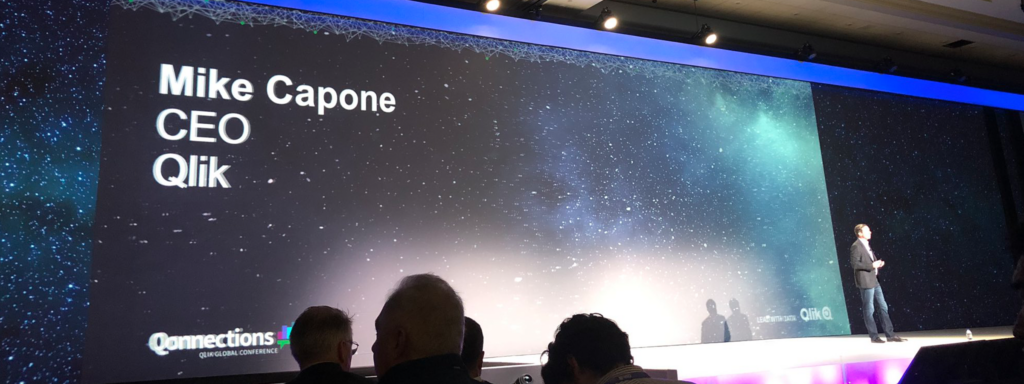
Discovering What’s Next in Data Literacy at our Global Conference.
We’re currently in the throes of our annual global conference, Qlik Qonnections, in the Texan city of Dallas!
It’s always amazing to bring our customers, thought leaders and experts together to discuss how they’re using business intelligence to unlock success in a data-driven world.
For several years, one of the big focuses of the conference has been data literacy. As global head of data literacy at Qlik and chair of the Data Literacy Project Advisory Board, it comes as no surprise that this is a matter that I’m extremely passionate about. I was thrilled when Qlik CEO, Mike Capone, kicked off the event discussing the importance of data literacy in his mainstage keynote, highlighting how the Data Literacy Project is at the heart of Qlik’s commitment to improving data literacy globally.
In fact, throughout the day there were over twenty breakout sessions dedicated to helping attendees understand how they can make their organizations more data literate. And it was one of these sessions that was one of the stars of the show yesterday (even if I do say so myself!).
The Data Literacy Project panel discussion, which I chaired, brought together globally recognized leaders in data literacy to explore why it matters to businesses and the role of inclusivity and education in ending global data illiteracy.
The panellists included Pulitzer Prize-nominated journalist and founder of DataPhi Communications, Alan Schwarz; Chantilly Jaggernauth, founder and CEO of Millennials and Data (#MAD); Qlik’s chief learning officer, Kevin Hanegan; Carolin Borchert, BI Consultant at SDG Group; and Ben Jones, founder and CEO of Data Literacy, LLC.
I kicked off the debate asking each panellists to define data literacy and what it means to them to give the audience a flavour of how each person is practically driving data literacy in their day-to-day lives. However, when I asked the panel to explain why data literacy has really come to the fore within the last few years, Alan Schwarz was the first to counter my question and really kick off the debate. He made a good point, stating that data literacy has always been important, and that society and businesses have always used data to make decisions, but it’s just different data than what we see surrounding us today.
When I questioned people on how organizations are driving data literacy, Carolin Borchert argued that while some companies are doing a great job at driving data literacy, the size of the company matters in how long it takes for them to move the needle. For Ben Jones, however, data literacy still has a long way to go. He said “organizations and society need to bridge the gap – we’re not anywhere near where we need to be”.
This brought us on to who is responsible for driving data literacy globally, with Kevin Hanegan arguing that education is crucial. Alan Schwarz claimed that “by far the most important course any student can take is statistics” but he also explained that it’s not just education institutions that need to help, but that “the media need to call out misuse of data.” The education point is something Chantilly Jaggernauth, agreed with, claiming that “today’s education system isn’t reflective of modern society and it needs to catch up.”
We quickly ran out of time and whilst we were all keen to keep debating, I wrapped up proceedings by asking the panellists for one tip on how to improve data literacy. Alan Schwarz kicked off by asking people to question the data and words around them, “numbers don’t lie, words lie – we need to use precise words when we interpret data.” Whilst Kevin Hanegan agreed that people should get a second view on data, so as to not be strayed by biases.
Check back in with me tomorrow to hear how the second packed day of sessions goes!